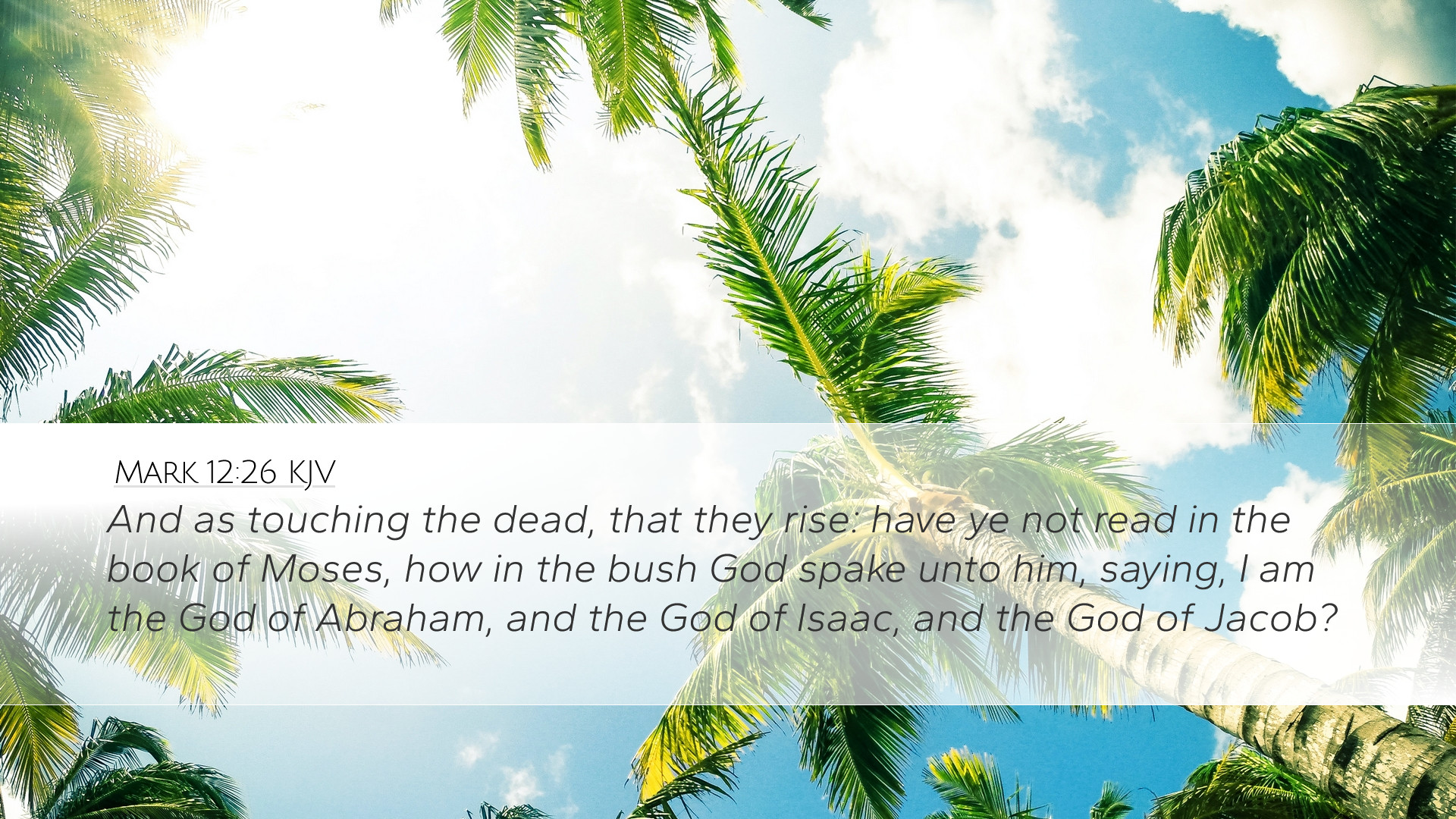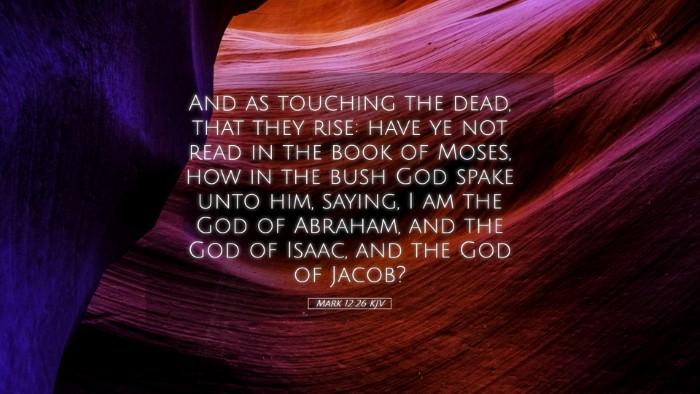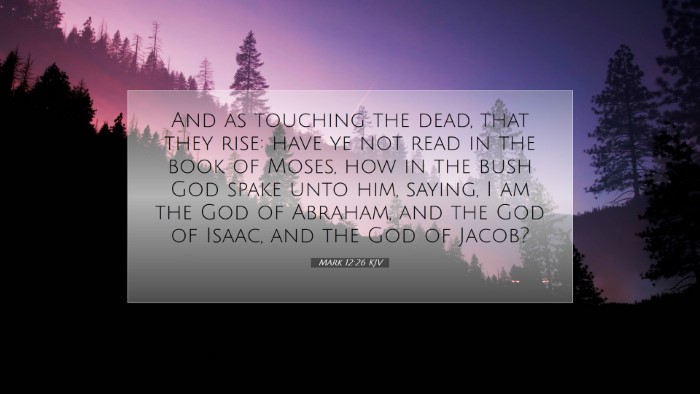Commentary on Mark 12:26
Verse: "And as touching the dead, that they rise: have ye not read in the book of Moses, how in the bush God spake unto him, saying, I am the God of Abraham, and the God of Isaac, and the God of Jacob?" (Mark 12:26, KJV)
Introduction
This passage occurs during a significant discourse between Jesus and the Sadducees, who questioned Him regarding the resurrection. They aimed to challenge Jesus’ authority and the doctrine of life after death. Through His response, Jesus makes a profound statement on the nature of God and the resurrection, drawing from the writings of Moses—a foundational figure in Jewish faith and law.
Contextual Analysis
In the context of the Gospel of Mark, this confrontation highlights the differing beliefs among Jewish sects: the Pharisees, who believed in the resurrection, and the Sadducees, who did not. Jesus' assertion utilizes a well-known passage from Exodus, emphasizing that God's relationship with the patriarchs signifies a living connection that transcends death.
Understanding the Sadducees’ Query
The Sadducees, a ruling class in Jewish society, were known for their strict adherence to the Torah and their rejection of the oral traditions upheld by the Pharisees. In their question about the resurrection (Mark 12:23), they present a hypothetical situation regarding a woman who had married seven brothers, attempting to imply the absurdities of resurrection. They believed that life was limited to the earthly existence without any afterlife, hence the necessity of this challenge.
Jesus' Reference to Moses
Jesus refers to the "book of Moses," specifically the passage found in Exodus 3:6, where God speaks to Moses from the burning bush, identifying Himself as the God of Abraham, Isaac, and Jacob. This citation serves multiple purposes:
- Affirmation of God’s Ongoing Relationship: The present tense "I am" signifies that God is not merely the God of the deceased but of the living. This implies that Abraham, Isaac, and Jacob continue to exist in some form, countering the Sadducees' claim.
- Scriptural Authority: In asking if they have not read this, Jesus confronts their knowledge of Scripture. The implication is that their understanding is flawed.
- Theological Implication: This revelation highlights the eternal nature of God and indicates that God is intimately involved with His people, past and present.
Theological Insights
Commentators like Matthew Henry point out that this encounter emphasizes a critical doctrine within Christianity: the resurrection of the dead. Henry notes that Jesus adds weight to this belief by referencing the authority of Scripture, demonstrating that proper interpretation of the Bible leads to an understanding of God's power over life and death.
The Nature of God
In this declaration, Jesus affirms the nature of God as "the God of the living." Adam Clarke adds that the terminology used by Jesus reflects the covenantal relationship established by God with the patriarchs, indicating that death does not sever this bond. Clarke further explains that the resurrection is central to Christian hope, supporting the ultimate restoration of all believers.
Implications for the Audience
The implications of Jesus' statement extended beyond the Sadducees to the broader Jewish audience of the day. Albert Barnes observes that Jesus aimed to enlighten the people regarding the misconceptions about life after death held by some religious leaders. Such clarity helps rebuild the foundational beliefs among His followers, reinforcing the doctrine of resurrection that is critical to Christian theology.
Practical Application for Theology and Ministry
For pastors and students of Scripture, this passage serves as a reminder of the importance of understanding Scripture in its entirety. Proper interpretation leads to sound doctrine, and as believers, examining the character of God and His promises sustains faith in the face of challenges such as doubt concerning resurrection.
Encouragement in Life Beyond Death
For believers, this text holds a promise of hope. The teachings of Jesus illuminate that death is not an end but a transition. The assurance that God is deeply engaged with His people, even after their earthly departure, provides comfort and encourages faithfulness in ministry and personal life. David Guzik notes the encouragement found in recognizing that the God who spoke to Moses is the same God who has plans for His creation beyond physical existence.
Conclusion
Mark 12:26 is a powerful declaration of the reality of resurrection and the nature of God's relationship with His chosen people. Through a careful examination of this verse in light of public domain commentaries, one can appreciate the depth of meaning within Jesus' teachings. As Jesus confronts misconceptions and affirms God's eternal relationship with humanity, we are reminded of our hope and identity in Him. Pastors, theologians, and scholars are encouraged to delve deeper into such texts, drawing both understanding and inspiration for personal faith and public ministry.


